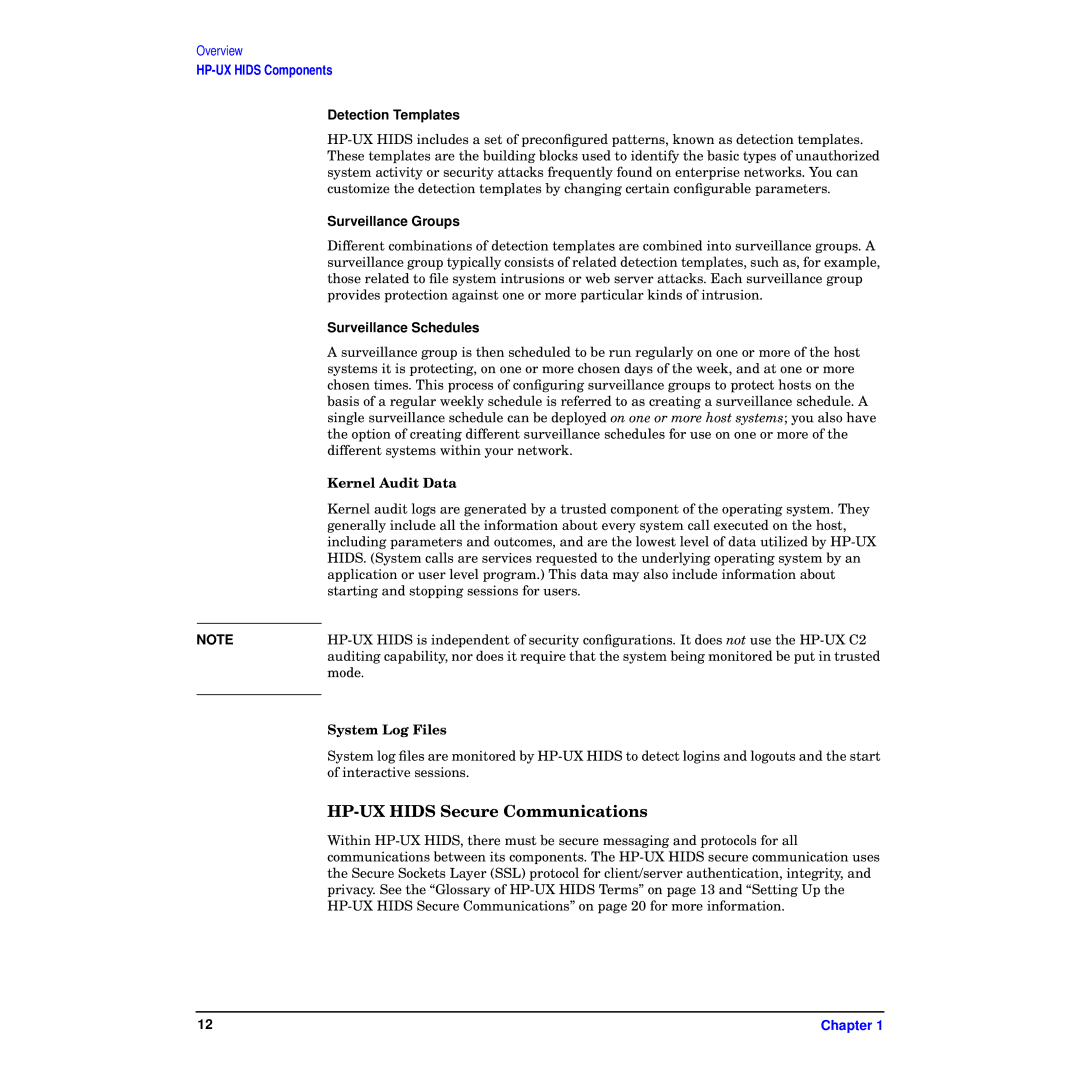Overview
Detection Templates
Surveillance Groups
Different combinations of detection templates are combined into surveillance groups. A surveillance group typically consists of related detection templates, such as, for example, those related to file system intrusions or web server attacks. Each surveillance group provides protection against one or more particular kinds of intrusion.
Surveillance Schedules
A surveillance group is then scheduled to be run regularly on one or more of the host systems it is protecting, on one or more chosen days of the week, and at one or more chosen times. This process of configuring surveillance groups to protect hosts on the basis of a regular weekly schedule is referred to as creating a surveillance schedule. A single surveillance schedule can be deployed on one or more host systems; you also have the option of creating different surveillance schedules for use on one or more of the different systems within your network.
| Kernel Audit Data |
| Kernel audit logs are generated by a trusted component of the operating system. They |
| generally include all the information about every system call executed on the host, |
| including parameters and outcomes, and are the lowest level of data utilized by |
| HIDS. (System calls are services requested to the underlying operating system by an |
| application or user level program.) This data may also include information about |
| starting and stopping sessions for users. |
| |
NOTE | |
| auditing capability, nor does it require that the system being monitored be put in trusted |
| mode. |
|
|
System Log Files
System log files are monitored by
HP-UX HIDS Secure Communications
Within
12 | Chapter 1 |
